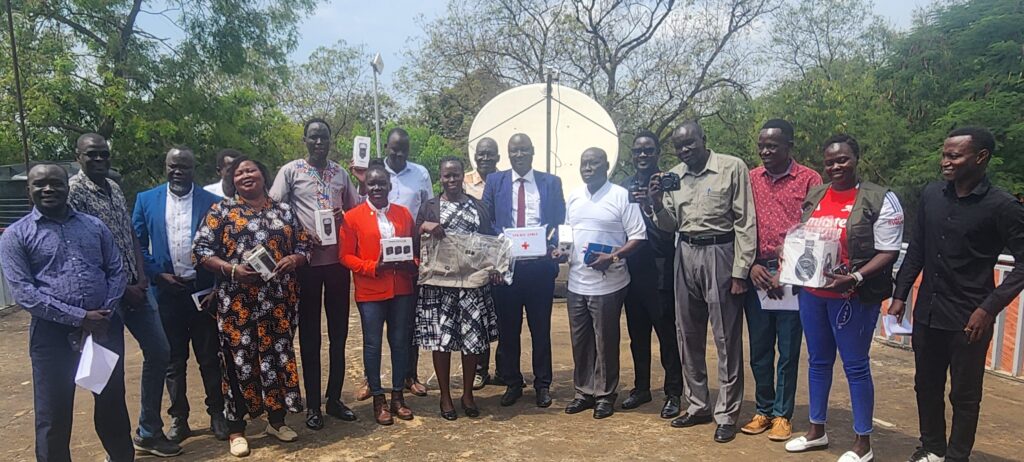The Association for Media Development in South Sudan (AMDISS), in partnership with Reporters Without Borders (RSF) and local media bodies, has launched a media equipment loan program aimed at supporting journalists who lack essential tools for their work.
Speaking during the launch at the AMDISS offices in Juba on Friday, AMDISS Advocacy and Communications Manager Juma Peter Maya said the initiative followed repeated appeals from reporters across the country struggling to access basic equipment.
“There are so many journalists, but most of them do not have the equipment to do their job,” Maya said. “This project will help bridge that gap and ensure reporters can carry out their duties professionally and safely.”
Maya said AMDISS sought assistance through IFEX, a Canada-based freedom of expression network, which connected the group with RSF.
“When we reached out to IFEX for support, they referred us to Reporters Without Borders, who then agreed to provide the first batch of equipment,” he said.
The donation includes Nikon cameras, laptops, audio recorders, lighting kits, press jackets, first aid kits, tripods, wireless microphones and other accessories.
The items will be distributed under a loan system jointly managed by AMDISS, the Union of Journalists of South Sudan (UJOSS) and the National Press Club (NPC) to ensure fair access and accountability.
“The equipment will not be given permanently but loaned out to journalists who submit formal requests,” Maya said. “We want to make sure that those borrowing the equipment are genuine journalists, and that it is returned after use so others can also benefit.”
Maya emphasized that the beneficiaries are freelance and field reporters rather than the media institutions themselves.
“AMDISS, UJOSS and NPC are not the beneficiaries,” he said. “The real beneficiaries are the journalists who need these tools to tell the stories of South Sudan.”
Representing RSF, journalist Maura Ajak said the initiative reflects RSF’s global commitment to press freedom and to supporting reporters working in difficult environments.
“The right to free and reliable information is not a privilege; it is a fundamental human right,” Ajak said. “This donation of cameras, recorders and other essential tools is a tangible expression of our commitment to the journalists of South Sudan.”
Ajak said the project underscores the importance of cooperation between RSF and local partners, adding that the new system would help empower journalists across the country to pursue independent reporting.
Commissioner for Access to Information Moyiga Nduru, who officiated at the event, urged journalists to handle the equipment responsibly and ensure its long-term use.
“Please keep these tools well. After two or three years, they should still be in good order,” Nduru said. “If we use and maintain them properly, they will continue serving journalists for many years.”
He praised AMDISS for transparency in managing the project, saying the organization’s accountability in a challenging economic environment should be commended.
“The economy is tough, but AMDISS chose honesty and accountability,” Nduru said. “They could have kept quiet about the donation, but instead they chose to share it with journalists. This honesty must be appreciated.”
Nduru officially declared the program launched, applauding AMDISS and its partners for their efforts to strengthen independent journalism in South Sudan.
Journalists in South Sudan face widespread challenges including limited access to basic equipment, poor pay, and insecurity. Many reporters operate without essential tools such as cameras, recorders, or reliable internet, hampering their ability to cover stories effectively. Media houses often struggle with low funding and lack of technical support, while frequent harassment, censorship, and threats from security agencies further restrict press freedom.




